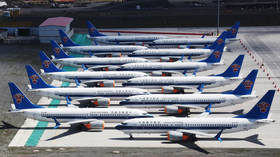Brits look to kitchen waste to power jets

British Airways has struck a deal with a UK refinery for aircraft fuel made from used cooking oils to help power the carrier’s flights by early 2022.
According to BA’s announcement late on Thursday, it had reached an agreement with Phillips 66 Humber refinery in north Lincolnshire to become the first airline in the world to use sustainable aviation fuel (SAF) produced in the UK.
Under the deal, BA will purchase enough SAF, made from recycled cooking oils and other household waste, to power 700 transatlantic flights on a Boeing 787 with nearly zero carbon dioxide emissions.
BA plans to power 10% of all its flights with SAF by 2030, and, in order to achieve this, recently inked deals with US SAF suppliers and invested in a Velocys flagship waste-to-fuel plant, which is to be constructed in the northeast of England.
Commenting on the new deal, BA’s chief executive Sean Doyle said it was “another important step on our journey to net zero carbon emissions,” noting that “the UK has the resources and capabilities to be a global leader in the development of SAF.” Humber’s general manager Darren Cunningham said the Lincolnshire refinery would be the first in the UK to produce SAFs on a commercial scale.
“The Humber Refinery was the first in the UK to co-process waste oils to produce renewable fuels and now we will be the first to produce SAF at scale. We’re currently refining almost half a million litres of sustainable waste feedstocks a day... Markets for lower-carbon products are growing, and this agreement [with BA] demonstrates our ability to supply them,” Cunningham stated.
SAF is not fully emissions-free fuel, but recycling lowers “lifecycle CO2 emissions” by some 80% compared with traditional jet fuel, according to the International Air Transport Association. Airlines see SAF as the only current solution to cut jet emissions, at least until electric passenger planes come into play, which is expected no sooner than around 2035.
Meanwhile, US-based United Airlines made aviation history on Wednesday, operating the first-ever passenger flight using 100% SAF on one of the plane’s two engines. The plane flew nearly 1,000 kilometers, and the engine that used SAF gave off roughly 75% less carbon dioxide than the one that used traditional jet fuel, United said in a statement.
For more stories on economy & finance visit RT's business section















